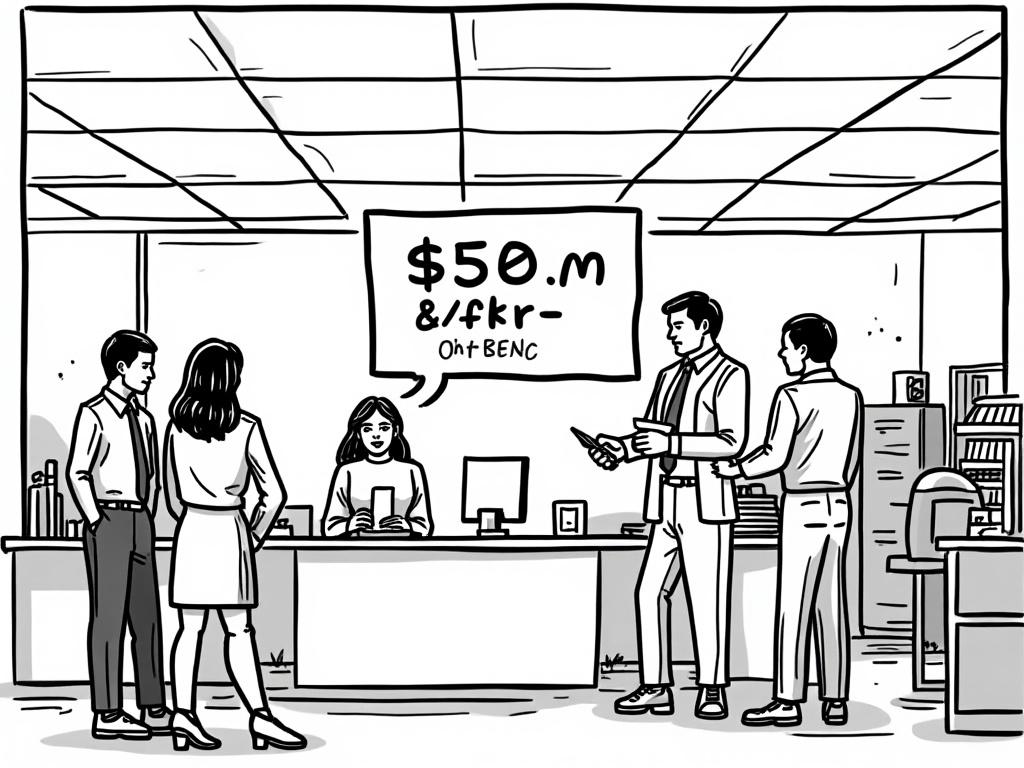
Current Property Prices in Greece: A Complete Market Analysis for 2024
Reading time: 12 minutes
Dreaming of owning a slice of paradise in Greece? You’re not alone. With its stunning coastlines, rich history, and increasingly attractive investment opportunities, Greece has become a hotspot for international property buyers. But here’s the reality check: navigating Greek real estate requires more than just falling in love with those Instagram-worthy sunsets.
Let’s cut through the noise and dive into what’s really happening in Greece’s property market right now.
Table of Contents
- Current Market Overview
- Regional Price Breakdown
- Investment Hotspots and Opportunities
- Common Challenges and Solutions
- Market Predictions and Trends
- Your Investment Roadmap Forward
- Frequently Asked Questions
Current Market Overview: The Numbers Don’t Lie
Greece’s property market has experienced a remarkable transformation since the economic crisis. Average property prices have increased by 47% since 2018, with Athens leading the charge at a staggering 65% growth rate. But what does this mean for you as a potential buyer?
Here’s the straight talk: The market isn’t just recovering—it’s thriving. Foreign investment, particularly from Germany, France, and the UK, has injected new life into previously stagnant areas. The Golden Visa program alone attracted over €2.4 billion in real estate investments between 2014 and 2023.
Key Market Drivers
Tourism Recovery: Greece welcomed 32.7 million visitors in 2023, surpassing pre-pandemic levels. This tourism boom directly impacts rental yields, making investment properties increasingly attractive.
Digital Nomad Appeal: Remote work trends have positioned Greece as a top destination for digital nomads, creating sustained demand for both short and long-term rentals.
Infrastructure Improvements: The €32 billion Recovery and Resilience Plan is modernizing transportation networks, particularly benefiting previously overlooked regions.
Current Average Prices by Property Type
| Property Type | Average Price (€/m²) | Annual Growth | Rental Yield | Investment Grade |
|---|---|---|---|---|
| Athens Apartments | €2,850 | +12.3% | 5.2% | ★★★★☆ |
| Thessaloniki Apartments | €1,650 | +8.7% | 6.1% | ★★★★★ |
| Island Properties | €3,200 | +15.1% | 4.8% | ★★★☆☆ |
| Coastal Villas | €4,100 | +18.2% | 3.9% | ★★★★☆ |
| Rural Properties | €750 | +5.4% | 7.2% | ★★★★★ |
Regional Price Breakdown: Where Your Money Goes Furthest
Not all Greek markets are created equal. Let’s explore the regional variations that could make or break your investment strategy.
Athens: The Capital Comeback Story
Athens has transformed from a crisis-hit capital to a genuine investment magnet. Prime locations like Kolonaki now command €6,000+ per square meter, while emerging neighborhoods like Exarchia offer opportunities at €2,200-2,800 per square meter.
Real-world example: British investor Sarah Martinez purchased a 75m² apartment in Koukaki for €180,000 in 2019. Today, similar properties sell for €240,000+, while her Airbnb generates €1,800 monthly during peak season.
Thessaloniki: The Undervalued Northern Gem
Greece’s second city offers compelling value propositions. With average prices 40% lower than Athens, Thessaloniki delivers higher rental yields and lower entry barriers. The upcoming metro system completion will likely accelerate price growth in currently affordable areas.
Island Markets: Paradise with Premium Pricing
Greek Island Property Price Comparison
Investment Hotspots and Opportunities
Smart investors aren’t just buying anywhere—they’re targeting specific opportunities. Here’s where the real money is being made:
Emerging Neighborhoods with High Growth Potential
Piraeus Port Area: The €600 million port expansion is transforming this working-class area into a commercial hub. Properties here have appreciated 35% in two years, yet remain 60% cheaper than central Athens.
Patras University District: With 40,000+ students and limited housing supply, this market offers guaranteed rental demand. Average yields exceed 8% annually.
Golden Visa Sweet Spots
The €500,000 minimum investment threshold (reduced to €250,000 in specific areas) creates unique opportunities. Savvy investors are combining multiple smaller properties to maximize rental income while securing residency rights.
Case study: German couple Klaus and Ingrid Weber invested €480,000 in three Thessaloniki apartments. Their combined rental income exceeds €2,400 monthly, while they secured EU residency and 22% capital appreciation in 18 months.
Common Challenges and How to Overcome Them
Let’s address the elephant in the room: buying property in Greece isn’t always straightforward. Here are the three biggest challenges you’ll face and practical solutions.
Challenge 1: Complex Legal Procedures
The Problem: Greek property law involves multiple government departments, potential title issues, and lengthy bureaucratic processes.
The Solution: Partner with a qualified English-speaking lawyer from day one. Budget €2,000-4,000 for legal fees, but consider it insurance against costly mistakes. Always request a full title search and building permit verification.
Challenge 2: Hidden Costs and Taxes
The Reality: Total acquisition costs typically add 12-15% to the purchase price through transfer taxes, legal fees, and notary costs.
Smart Strategy: Create a comprehensive budget including:
- Transfer tax: 3.09% of property value
- Legal fees: 1-2% of purchase price
- Notary fees: €1,000-2,500
- Property surveys: €500-1,200
- Annual property tax: 0.1-0.8% of objective value
Challenge 3: Finding Reliable Properties
The Issue: Online listings often lack crucial details, and some agents prioritize quick sales over buyer satisfaction.
Winning Approach: Work with established international agencies that specialize in foreign buyers. Consider exploring comprehensive listings on platforms offering property for sale greece with detailed property information and professional support services.
Market Predictions and Trends for 2024-2025
What’s next for Greek real estate? Based on current data and expert analysis, here’s what we’re seeing:
Short-term Outlook (2024)
Price Growth Moderation: Expect 6-8% annual growth as markets mature and supply increases. The explosive growth of 2021-2023 is stabilizing into sustainable appreciation.
Rental Market Strength: Tourism recovery continues driving rental demand, particularly for properties near transportation hubs and cultural sites.
Medium-term Trends (2025-2027)
Infrastructure Impact: Major projects like the Athens Metro extensions and regional airport upgrades will create new investment corridors.
Sustainability Premium: Energy-efficient properties will command 10-15% premiums as EU regulations tighten and buyer preferences shift toward eco-friendly features.
According to Dimitris Melachroinos, CEO of Greek real estate consultancy Algean Property: “We’re entering a maturation phase where quality and location matter more than ever. Investors who focus on fundamentals rather than hype will see the best returns.”
Your Investment Roadmap Forward
Ready to transform Greek property dreams into reality? Here’s your strategic action plan:
Immediate Steps (Next 30 Days)
- Define Your Investment Goals: Are you seeking rental income, capital appreciation, or Golden Visa eligibility? Your strategy depends on this fundamental decision.
- Establish Your Budget: Include the 12-15% additional costs we discussed. A €300,000 property will cost €335,000-345,000 total.
- Research Target Areas: Focus on 2-3 regions that align with your goals and budget constraints.
Near-term Actions (60-90 Days)
- Assemble Your Team: Secure a qualified lawyer, tax advisor, and experienced local agent before making any commitments.
- Conduct Market Visits: Virtual tours are helpful, but nothing replaces boots-on-the-ground research for understanding neighborhoods and property conditions.
Execution Phase (3-6 Months)
- Negotiate Strategically: Greek sellers often expect negotiation. Start 10-15% below asking price in most markets.
- Secure Financing Early: If needed, Greek banks typically require 30-40% down payments for foreign buyers.
Remember: Greece’s property market rewards patience and preparation over impulsive decisions. The investors seeing 20%+ annual returns didn’t get lucky—they did their homework.
As digital transformation reshapes how we live and work, Greece’s combination of lifestyle appeal, improving infrastructure, and competitive pricing positions it as a long-term winner in European real estate. The question isn’t whether you should consider Greek property—it’s whether you’re prepared to act strategically while opportunities remain accessible.
What’s your next move going to be?
Frequently Asked Questions
Can foreigners buy property in Greece without restrictions?
Yes, EU citizens can purchase property freely throughout Greece. Non-EU citizens face minimal restrictions and can buy in most areas, though some border regions and certain islands have specific limitations. The Golden Visa program actually encourages foreign investment by offering residency rights for qualifying property purchases.
What’s the minimum investment required for a Golden Visa through real estate?
The standard minimum is €500,000, but this was reduced to €250,000 for properties in specific municipalities outside major urban centers. The investment can be split across multiple properties, and you can include family members in the application. Note that these thresholds are subject to periodic government review.
How long does the property buying process typically take in Greece?
Expect 2-4 months from offer acceptance to completion, assuming no complications. The process involves property surveys, legal checks, mortgage approval (if applicable), and notary appointment scheduling. Having experienced professionals and complete documentation ready can significantly reduce timeframes, while complex title issues or bureaucratic delays can extend the process to 6+ months.

Article reviewed by Theodore Whitaker, Cross-Border Real Estate Broker | Global Transaction Facilitator, on June 4, 2025
